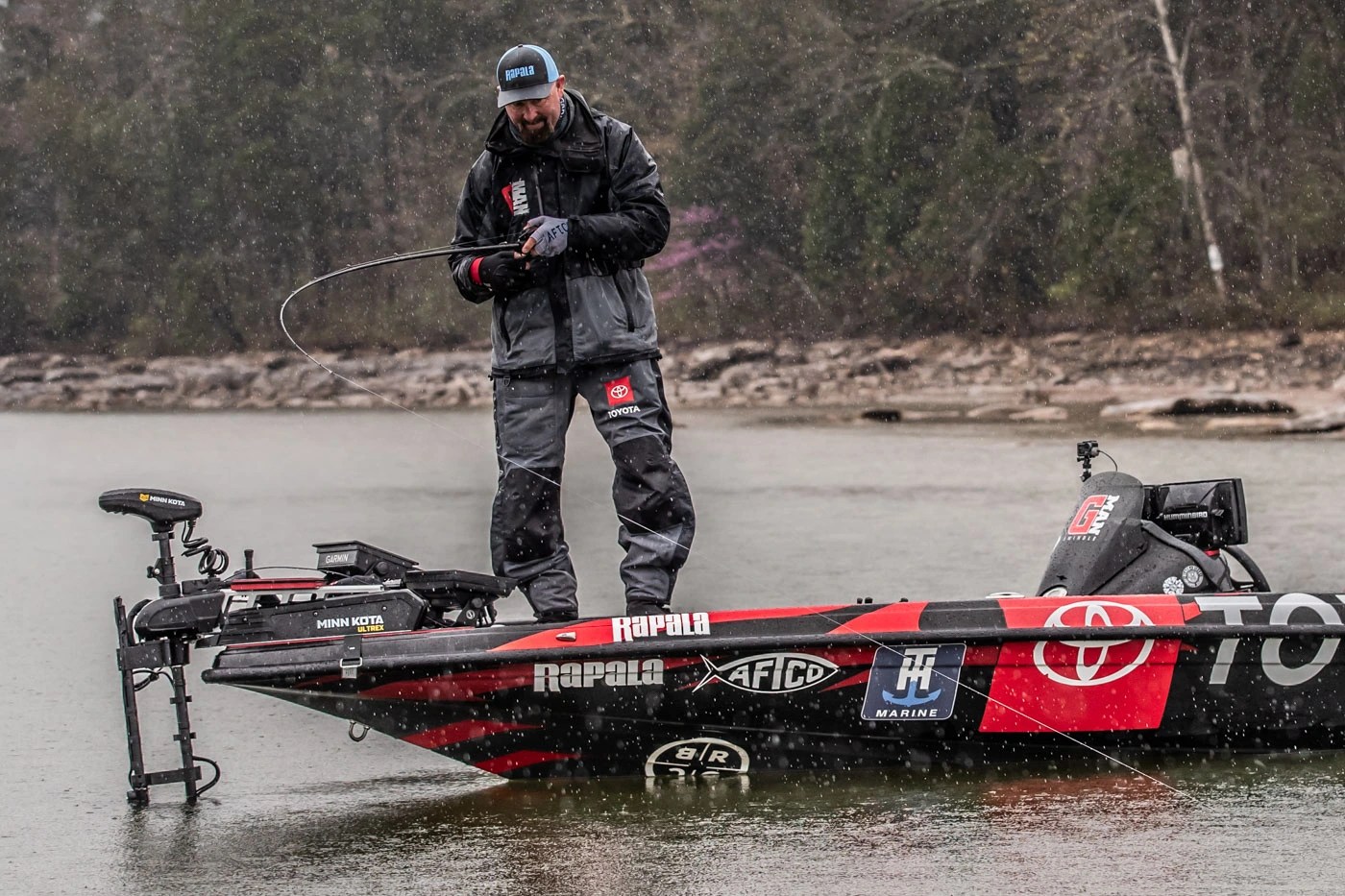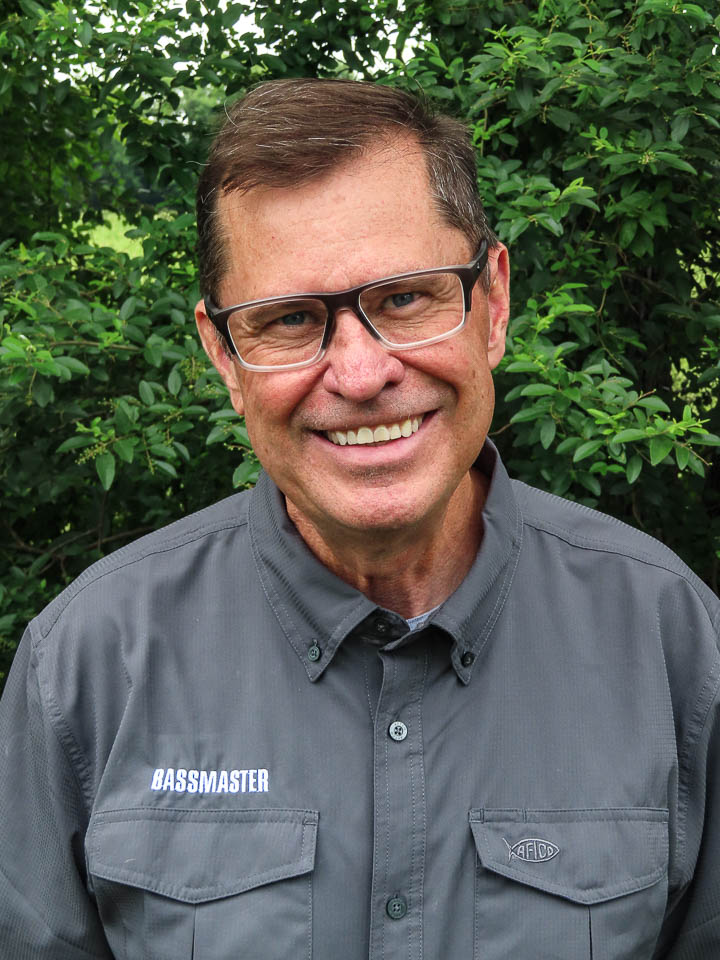
KNOXVILLE, Tenn.— There is an obscure twist to bass fishing’s world championship that rarely attention in the outcome of the Academy Sports + Outdoors Bassmaster Classic presented by Toyota.
In all other bass tournament leagues, from high school and college, to club derbies and up to the highest level, what happens in practice usually forms the foundation for the winning tactic.
The Classic is the lone exception. Practice is a relative term, with an “unofficial” practice on the Friday, Saturday and Sunday preceding the competition on the following weekend. There is no fishing on Monday, when the contestants are required to check into the Classic hotel. Tuesday is set aside for TV interviews, registration and the official meeting. The one and only “official” practice day is Wednesday, and Thursday is yet another no fishing day for meeting the media. Finally, after all that, the tournament begins on Friday.
Confused? You should be. The Classic isn’t a typical tournament and the media, sponsor and logistical components make it what it is. The key takeaway is depending on what an angler discovers in “practice” only goes so far in carrying over to game time.
Even the most seasoned Classic veterans know it. Friday, the first day of competition, oftentimes requires a clean slate and potential reset of tactics and strategies learned in practice.
“The main focus of practice for me is less tactical, and more about scouting, looking around and getting familiar with the lay of the lake,” said Jason Christie, the two-time Classic champ with nine appearances.
“A lot of times there isn’t a calculated approach you can take,” he continued. “That’s where all the graphing and exploring come into play, because when you come up with a pattern during game day it’s easier to replicate into a pattern for good.”
“Practice doesn’t mean a lot to me, because everything changes in these springtime Classics.”
That carefree attitude is only made possible by years of success driven by instinct. Snap decisions come naturally after so many hours spent turning trial-and-error into checks and trophies.
After 20 Classics, Gerald Swindle has mastered the mental side of the broken-up practice schedule. Even so, it took practice of its own.
“Classic practice is like that high school girl crush you had as a teenager,” Swindle said. “It got hot, ran cold, and then you got back together again until it just wore you out.”
Translated, that “Swindleism” means to avoid getting spun out and too deep into practice failures or a lack of developing a consistent or solid pattern, or even developing overconfidence when something begins to click.
“It’s still not game time, but the downtime and lack of being on the water on those off days can put your mind into overdrive, over-processing and over-thinking everything you can’t control,” Swindle said.
Swindle resets his mind and diverts attention away from such unproductive (and mentally toxic) thoughts that can wreck his psyche when it comes time to take off on the first day of competition.
“I just don’t put a lot of emphasis on practice, unless the weather is consistent, without cold fronts, and other environmental aspects that involve the spawning cycle that we are all too familiar with as anglers that can change daily.”
That is the case this week on the Tennessee River. Multiple cold fronts with temperature fluctuations between the lower 20s for nighttime lows, to the upper 70s for daytime highs, put practice in a state of change. Rain has created cold, dingy runoff in areas.
Channeling the negative thoughts into positive energy is more doable for Classic anglers at the Elite Series level.
“The broken-up practice days don’t stress me out, like we have here on the Tennessee River,” said Brandon Lester. “I look at it as an opportunity to experience the changes that might come into play during the tournament.”
It’s not always smooth sailing in the Classic or the Elites; we have to take the hand we are dealt with and make the most of it,” he said. “That’s why we are here. It’s not supposed to be easy.”
Lester’s post-practice plan focuses more on tracking the movement of prespawn largemouth as they begin migrating into the creeks to spawn.
“It’s more about where they are going, instead of where they were during practice,” he said.
Lester (and other contestants) intentionally searched for a pattern allowing him to pinpoint specific areas where the bass staged on transitional habitat. Equipped with the knowledge of those textbook commonalities, he will on Friday begin the process of intercepting the bass as the warming conditions stimulate their migration forward and into shallower areas.
Carl Jocumsen, now the first Australian to compete in a Classic, shares Lester and Swindle’s theories about not depending on the segmented practice under changing conditions.
“I’m not looking for the winning spot that could sustain me over four days like we have with an Elite event,” said Jocumsen. “Instead, I spread myself out over a broad area to see all of the lake, so I have lots of options.”
That all said, the Classic practice is like a competition in itself, quirks and all.





